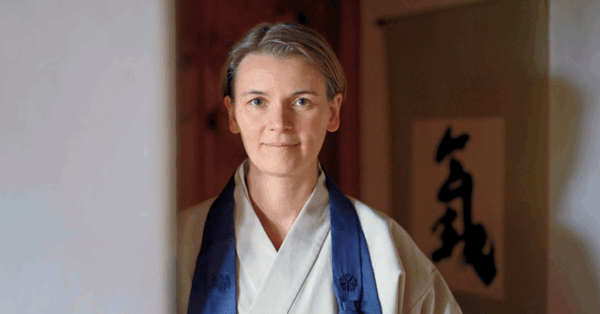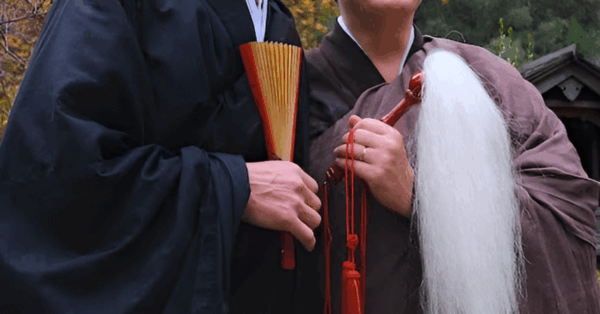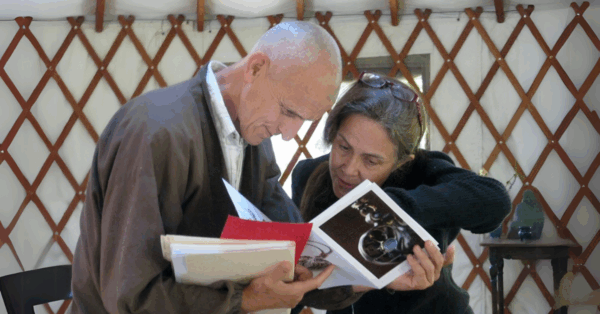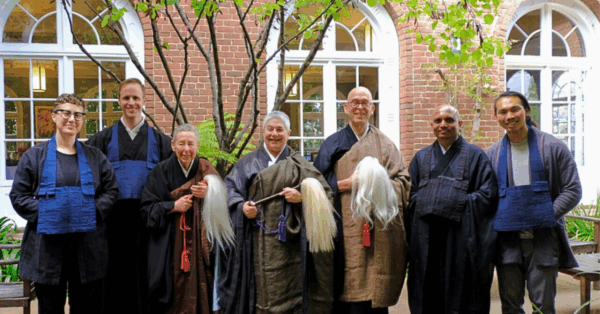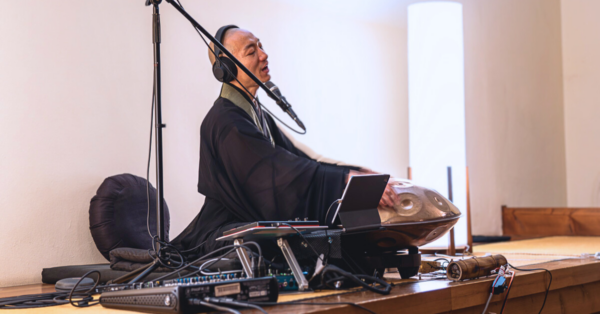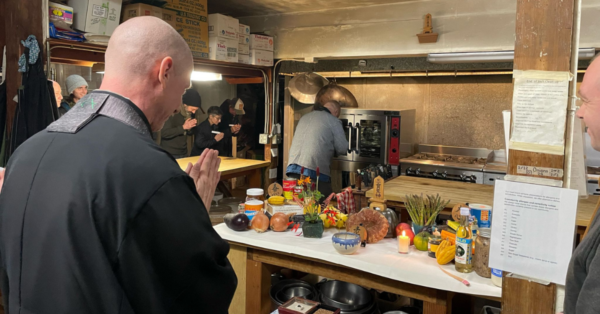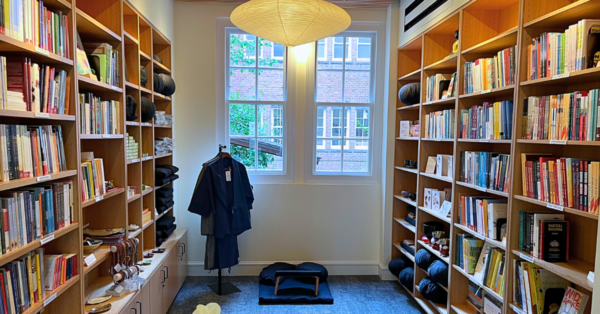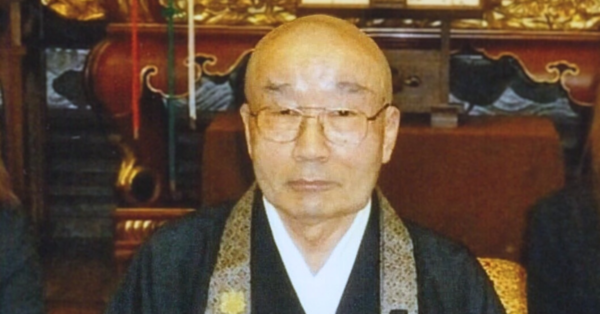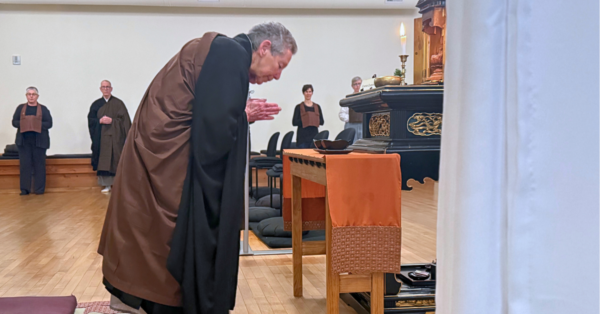by Sachico Ohanks, Communications Coordinator at SFZC
In the midst of our doubt and confusion and the general unpredictability of life, most of us rely on a set of core guiding principles to help us make decisions and take action—whether we realize it or not. Marc Lesser has dedicated himself to helping us understand five fundamental paradoxes which, when mastered, can offer us equanimity, even joy, as we strive to live meaningful lives in a world without guarantees. In Marc’s upcoming workshop Know Yourself, Forget Yourself based on his new book with the same title, he will cover with clarity and kindness these five paradoxes.
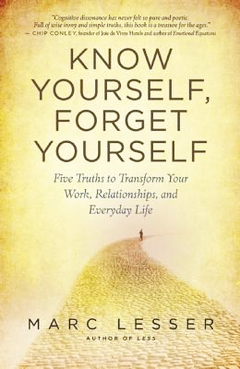 Sachico: Which of the five core paradoxes do people find to be the most challenging to work with?
Sachico: Which of the five core paradoxes do people find to be the most challenging to work with?
Marc: I think that all five paradoxes that I write about in my new book Know Yourself, Forget Yourself are simple and easy, and at the same time complex and challenging to work with. Yes, a paradox!
Let’s talk about the second paradox: Be Confident, Question Everything. We all want to be confident and understand the importance of confidence, of trusting ourselves, and of trusting others. We recognize it is important to live in the world with a certain amount of belief, hope, and confidence.
As I say these words, it makes me think of a quote from the writer and farmer Wendell Berry, who once said, “Be joyful, though you have considered all the facts.” The amount of difficulty and suffering in the world can test our confidence. Simply getting up in the morning, taking care of ourselves and our families, working, and learning all require a certain amount of confidence. Despite these challenges at a deep level, we can be confident in our innate goodness and in the innate goodness of others.
Questioning everything is where the change, growth, and learning happen in our lives. At a very basic level, we really don’t know what will happen in the next moment. We easily lull ourselves to sleep with assumptions and predictions, but the Buddhist philosophy about impermanence and unpredictability is more than an idea; it is a reality. It takes a great deal of confidence to question, to doubt, and to embrace not knowing.
We can work with confidence by practicing mindfulness, self-awareness, and emotional awareness. In this way, confidence relates to the practice of self-knowing. We can do this through a meditation practice and by paying attention in all parts of our lives. We can work with questioning by letting go of what we think we know and opening to being curious and to asking great questions.
Sachico: Once you come to understand one of the core paradoxes, do you begin to better understand other paradoxes as a result?
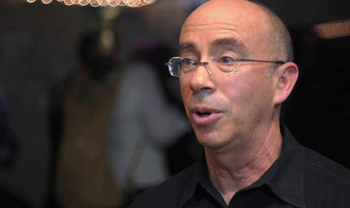 Marc: These five paradoxes are all interrelated. I do think that the first paradox Know Yourself, Forget Yourself is primary and that the other paradoxes—Be Confident, Question Everything; Fight For Change, Accept What Is; Embrace Emotion, Embody Equanimity; Benefit Others; Benefit Yourself—flow from this one. At the same time, by working with any one of these paradoxes, you are led to working with them all.
Marc: These five paradoxes are all interrelated. I do think that the first paradox Know Yourself, Forget Yourself is primary and that the other paradoxes—Be Confident, Question Everything; Fight For Change, Accept What Is; Embrace Emotion, Embody Equanimity; Benefit Others; Benefit Yourself—flow from this one. At the same time, by working with any one of these paradoxes, you are led to working with them all.
The practice of working with paradox is a way of developing yourself to see yourself and the world from multiple perspectives, to cultivate a wider viewpoint, and to be able to choose with greater clarity and act with greater effectiveness.
Sachico: How does your Buddhist practice inform your work with the five core paradoxes?
Marc: The first paradox, Know Yourself, Forget Yourself, comes from the teaching of Zen Master Dōgen, who during the 13thcentury in Japan said, “To study the way is to study the self; to study the self is to forget the self; to forget the self is to become awakened with everything.” And, when we look at Buddhist teachings, especially Zen teachings, we see the use of paradox as a core training method.
Much of my current practice is translating Buddhism to make it accessible to the world of work. The fifth paradox, Benefit Others, Benefit Yourself, is one that highlights my experience of bridging my meditation practice and work practice. We sit for ourselves and for others. We work for ourselves and for others.
Sachico: Can someone who does not have a meditation or spiritual practice still realize the full benefits of your teachings on paradox and truth?
Marc: Anyone can work with paradox. I would say there is no avoiding facing and working with the world of paradox and contradiction. And, paradox can provide an easy to understand path into meditation and spiritual practice. We don’t need to be spiritual to work with confidence and questioning, or to work with fighting for change and accepting what is. In some way, paradox is making what is obvious more obvious.
Sachico: In your teachings, you put an emphasis on “creating an inspired and effective life.” What are some of the indicators that suggest you are on the way to achieving this?
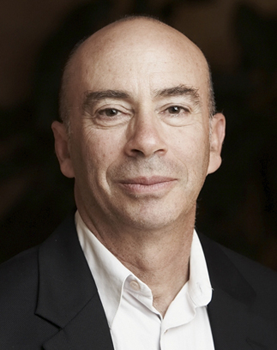 Marc: I think we all want to live an inspired and effective life, and that we may think we have to choose between them. Many of us were taught that to be artists or religious people we would have to give up being effective, or we could be effective but this meant giving up being inspired. Meditation practice, spiritual practice, and working with paradox provide insight into and practices for doing both. I think that just sensing this possibility—even in the midst of our doubts, our struggles, and the messiness of our lives—is an indicator that we are on the right path.
Marc: I think we all want to live an inspired and effective life, and that we may think we have to choose between them. Many of us were taught that to be artists or religious people we would have to give up being effective, or we could be effective but this meant giving up being inspired. Meditation practice, spiritual practice, and working with paradox provide insight into and practices for doing both. I think that just sensing this possibility—even in the midst of our doubts, our struggles, and the messiness of our lives—is an indicator that we are on the right path.
Sachico: You spent ten years as a resident of San Francisco Zen Center. Could you share with us a remembrance that continues to inspire you today?
Marc: I find myself thinking a lot about my time working in the Tassajara kitchen. I lived at Tassajara for five years, and during this time I was the dishwasher, baker, assistant to the head cook, head cook, and director. On the altar in the kitchen are three practices for work in the kitchen and the spirit to bring to whatever work we are doing. These practices, recommended by Dogen as instructions to the head cook, are Joyful Mind, Grandmother Mind, and Boundless Mind. These can be powerful ways to work with the paradoxes in our lives: with joy and appreciation, with loving kindness, and with a wide open heart.
We will have the opportunity to explore the five paradoxes with Marc Lesser in his upcoming workshop Know Yourself, Forget Yourself, on Saturday, May 25, at the City Center Conference Center.
Marc’s new book is available in the City Center bookstore as well as online at Amazon. His workshop with Jackie McGrath, Know Yourself, Forget Yourself: The Mindful Leader, is scheduled August 9-11 at Tassajara Zen Mountain Center.


